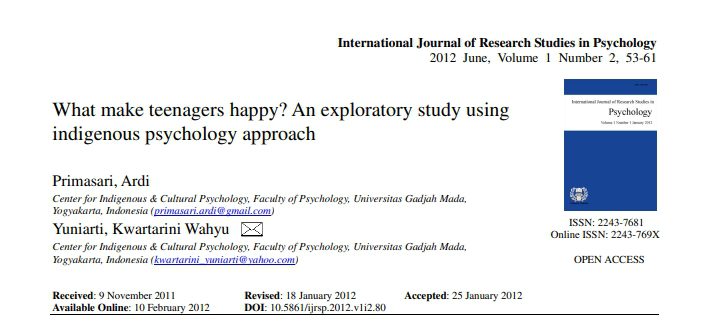
ABSTRACT. The aim of this research was to explore what make teenagers happy. The study was a survey on the total number of 467 high school students (males=198, females=269). An open ended questionnaire was used to learn what makes teenager happy. The data was analyzed using indigenous psychological approach. Preliminary coding, categorization, axial coding and cross-tabulation were run accordingly. The respondents’ answers were analyzed using descriptive analysis. Results showed that there were three elements of the source of teenager’s happiness, those are: (1) relations with others (50.1%) consisting of events concerning their families, relations with friends, and events related to love and being loved; (2) Self-fulfillment (32.67%) consists of events related to achievement, the use of leisure time, and money; (3) Relation with God (9.63%) consists of spiritual events that involve the relations between teenagers and God. This study gave the insight that family-bond remain importance. Their being teenagers does not shift the reference into peer groups, rather than that, family is the main source of their happiness. It is also concluded that all are nothing but social engagement.
